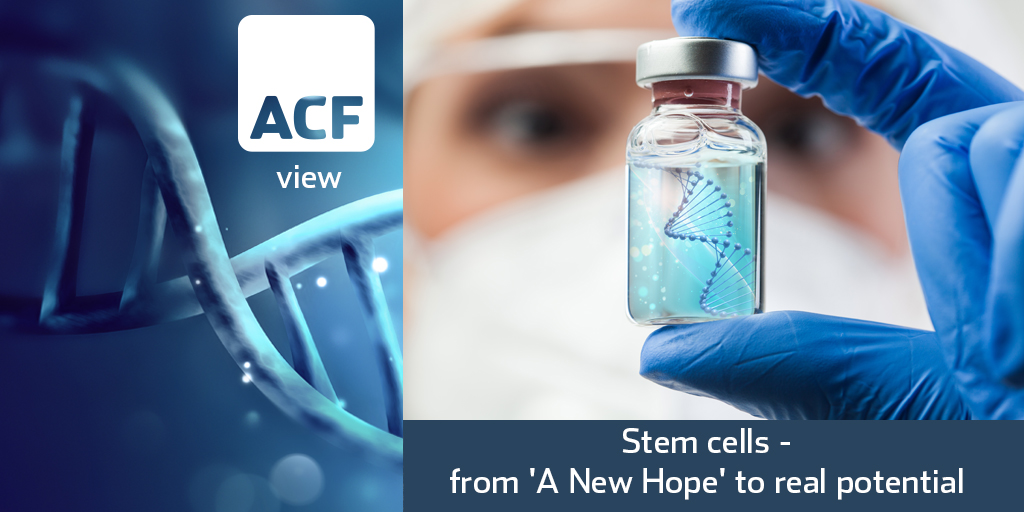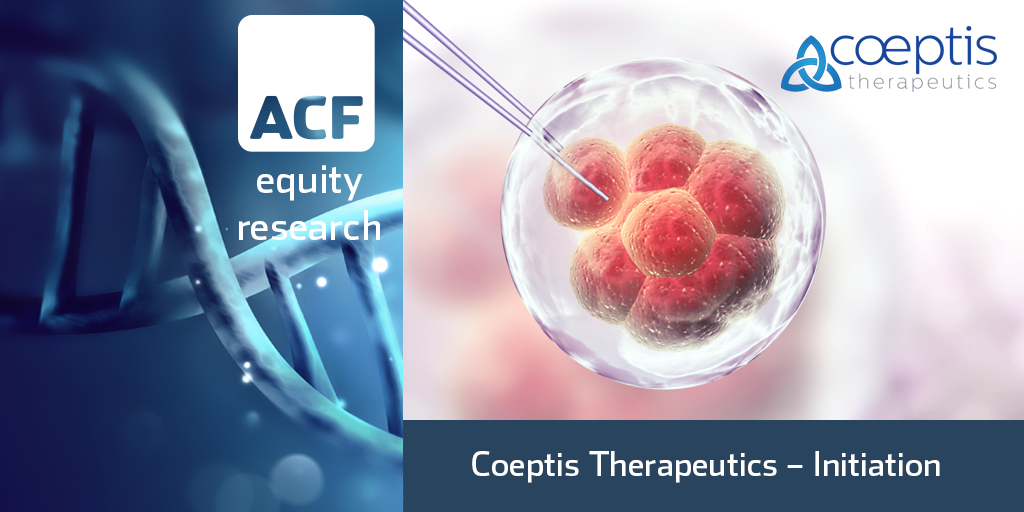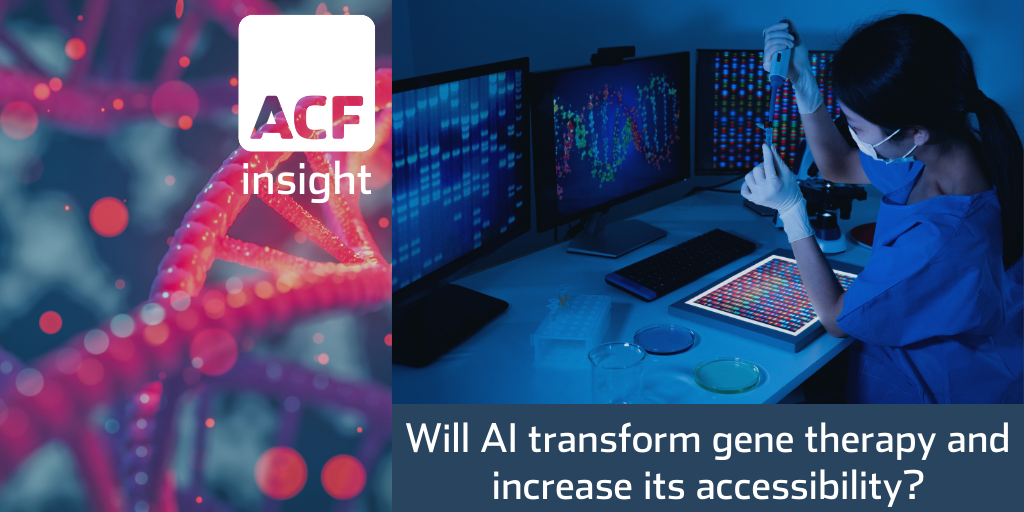Regenerative Medicine

The Future of Healthcare
Welcome to ACF Equity Research’s Regenerative Medicine / Regenerative Healthcare page. This page provides examples of relatively recent leading investment / equity research derived from our expert analysis and insights on the regenerative healthcare and medicine sub-segment. We provide in-depth reports, thematics and engaging and insightful blogs on groundbreaking therapies and market opportunities. ACF Equity Research delivers investment research that moves prices, increases volumes and helps educate investors, thorough, accurate, clear and insightful award winning products, analysis and services.
Start your journey into the science and investment opportunities in regenerative medicine and healthcare with us today.
Note that whilst investment research does not guarantee outperformance, stocks without research coverage generally underperform the market.
What You’ll Find:
- Comprehensive research on leading companies and startups
- Market trends and industry forecasts
- Expert commentary from thought provoking high quality specialist investment analysts
- Investment strategies and guides
Why Follow Us?
- Rigorous, accurate analysis
- Clear, actionable insights
- Published to a community of passionate investors
Explore the transformative potential of regenerative medicine with ACF Equity Research. We analyse so you can invest in the future, today.
Something is changing in oncology. We believe it is beginning a migration out of the surgery theatre -it feels li ke strands of a revolution are coming together. By way of example, IceCure (NasdaqCM : ICCM) Medical’s ProSense® System treatment test in EarlyStage Breast Cancer confirmed 100% tumour reduction in February 2024. The aim of the treatment is to destroy tumours by freezing them (cryotherapy) instead of removing them surgically. Cryotherapy offers a minimally invasive alternative to surgical removal, with benefits such as a reduced recovery,
lower risk of complications, preservation of healthy tissue and suitability for high-risk patients where surgery is risky.
Cryotherapy is often performed as an outpatient procedure involving less post-operative pain and lowering the cost of the procedure. It can be repeated as needed making it a viable option for treating tumours with minimal psychological and physical impact on patients. ….Read More on Innovations in Oncology
BrainStorm Cell Therapeutics Inc. (Nasdaq: BCLI, Biotech) is focused on developing autologous mesenchymal stem cell (MSC) therapies for the treatment of neurodegenerative diseases (NDDs) – BCLI’s primary target is the fatal amyotrophic lateral sclerosis (ALS/MND/Lou Gehrig’s). Post hoc analysis of BCLI’s PIII trial data shows BCLI’s NurOwn® (debamestrocel, MSC-NTF), has statistically significant clinical effects on early-stage ALS sufferers and that placebo trialists deteriorate faster. Peer reviewed research (Mar 2024) indicated that BCLI’s NurOwn® has a positive impact on NfL biomarkers for ALS. These and other factors have persuaded the FDA to sign up to the SPA binding commitment for a NurOwn® PIIIb ALS trial. BCLI has regained regulatory minimum value NASDAQ compliance. Our valuation captures only the smaller by patients US market and excludes the larger EU/UK market. ….Read More on BrainStorm Cell Therapeutics Initiation
Regenerative medicine remains an extremely exciting area of healthcare with vast investment potential. In spite of the usual setbacks in valuation and strategy, the sub-sector has pivoted and the market remains innovative and attracts investment capital. Rather than replace entire tissues, which is a complex activity, we believe the immediate future for stem cells is more likely to be in the successful stimulation of the bodies on repair mechanisms. Within regenerative medicine we believe there is significant potential for stem cell therapies for neurodegenerative diseases. To illustrate we look at Motor Neuron Disease (MND) also called….Read More on Regenerative Medicine – Stem Cells & ALS
The field of stem cell (SC) research is evolving rapidly. There are over 600 neurodegenerative diseases, each with its unique set of symptoms, progression and underlying pathology.
In February 2024 scientists researching stem cells at the Singapore-MIT Alliance for Research and Technology (SMART) announced the development of a tool to create an in-vitro model of a neurodegenerative disease – this may represent a significant step forward for neurodegenerative disease therapy development.
The SMART team tool is called a microfluidic device. Microfluidic devices are systems that manipulates fluids on a microscopic scale. The devices are made up of structures moulded into a substrate, e.g. glass, silicon or polymer….Read More on Unlocking Hope – Stem Cells & Neurodegenerative Diseases
BrainStorm Cell Therapeutics Inc. (Nasdaq: BCLI) is a biotechnology company focused on developing autologous mesenchymal stem cell (MSC) therapies for the treatment of neurodegenerative diseases – BCLI’s primary target is the fatal amyotrophic lateral sclerosis (ALS/MND/Lou Gehrig’s). BCLI’s’s proprietary technology platform, NurOwn®, stimulates Mesenchymal Stem Cells to emit neurotrophic factors (MSC-NTF), which promote the survival of neurons across multiple disease states. BCLI is planning to launch a Phase 3b trial of NurOwn in ALS patients. Positive results from the trial are likely to act as a major catalyst for BCLI’s valuation and the path for marketing approval….Read More on BCLI Core Investment Case
Exosomes have transitioned from relative obscurity in cellular biology to becoming a key player in understanding and treating a variety of diseases. Exosomes, along with stem cells, are significant in biology and regenerative medicine. Whilst it may seem wrong to compare apples to oranges, comparing exosomes to stem cells can provide valuable insights into their distinct roles and how they might complement each other in therapeutic applications.
Exosomes can be thought of as a microcosm of the cell but without the characteristic of triggering immunological responses. Exosomes do not need to be autologous…Read More on Exosomes – Stand-alone Therapy or Complement?
Dealmaking is essential to biotech companies to support the costs of new drug developments. Dealmaking provides capital injections for commercialization of therapies and exits for capital for earlier investors – ACF estimates a pickup in M&A deals for 2023. Many of today’s blockbuster drugs such as Keytruda (cancer treatment), Opdivo (cancer drug) and Enbrel (anti-inflammatory), are the result of M&A deals.
Large and mega cap drug companies long-ago off-loaded a large element of drug development risk on to smaller focused entities, that essentially do a better job and are more transparent for investors. if a small cap biotech project does not work, there is no hiding and investors will very quickly redirect capital away from that particular project…Read More on Biotech M&A Strong Year Ahead in 2023
Coeptis Therapeutics Inc. (NASDAQ: COEP) is a pre-clinical stage biopharmaceutical Corp focused on fighting cancer via a pipeline of potentially novel products targeting CD38+ related unmet need and solid tumor cancers. The up list to Nasdaq via the SPAC Bull Horn Holdings (BHSE) is a key milestone leaving COEP with 19,516,839 shares in issue, better liquidity and greater access to capital needed to advance its pipeline. We assess that there are multiple value drivers within COEP, including its two lead candidates (GEAR-NK and CD38+-Diagnostic) along with its IP rights to its solid tumor targeting SNAP-CAR platform (‘universal wrench’). If proven clinically, COEP could significantly improve treatment outcomes in CD38+ cancers and in a range of solid tumors, e.g., breast and ovarian cancers….Read More on Coeptis Therapeutics Initiation
Artificial intelligence (AI) adoption in healthcare is increasing. AI and healthcare has converged over last ten years – advancements in machine learning processes have already enabled the development of breakthrough devices, such as robotic surgeons and doctors, and in turn treatments.
As ACF has argued previously, opportunities remain abundant for AI integration into healthcare. We continue to argue that the healthcare sector (pharma, biotech, services, care, telemedicine, devices, diagnostics) is only scratching the surface in terms of the value generation AI has to offer the sector…Read More on Human Pangenome a step further for personalised medicine
Artificial intelligence (AI) adoption in healthcare is increasing. AI and healthcare has converged over last ten years – advancements in machine learning processes have already enabled the development of breakthrough devices, such as robotic surgeons and doctors, and in turn treatments.
As ACF has argued previously, opportunities remain abundant for AI integration into healthcare. We continue to argue that the healthcare sector (pharma, biotech, services, care, telemedicine, devices, diagnostics) is only scratching the surface in terms of the value generation AI has to offer the sector…Read More on AI expands gene therapy’s accessibility






















